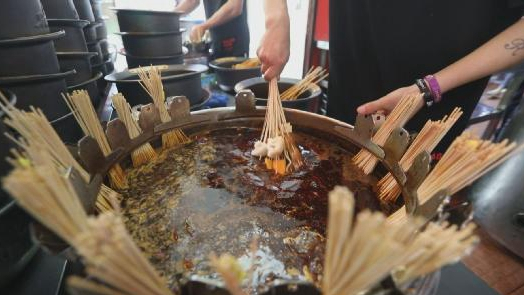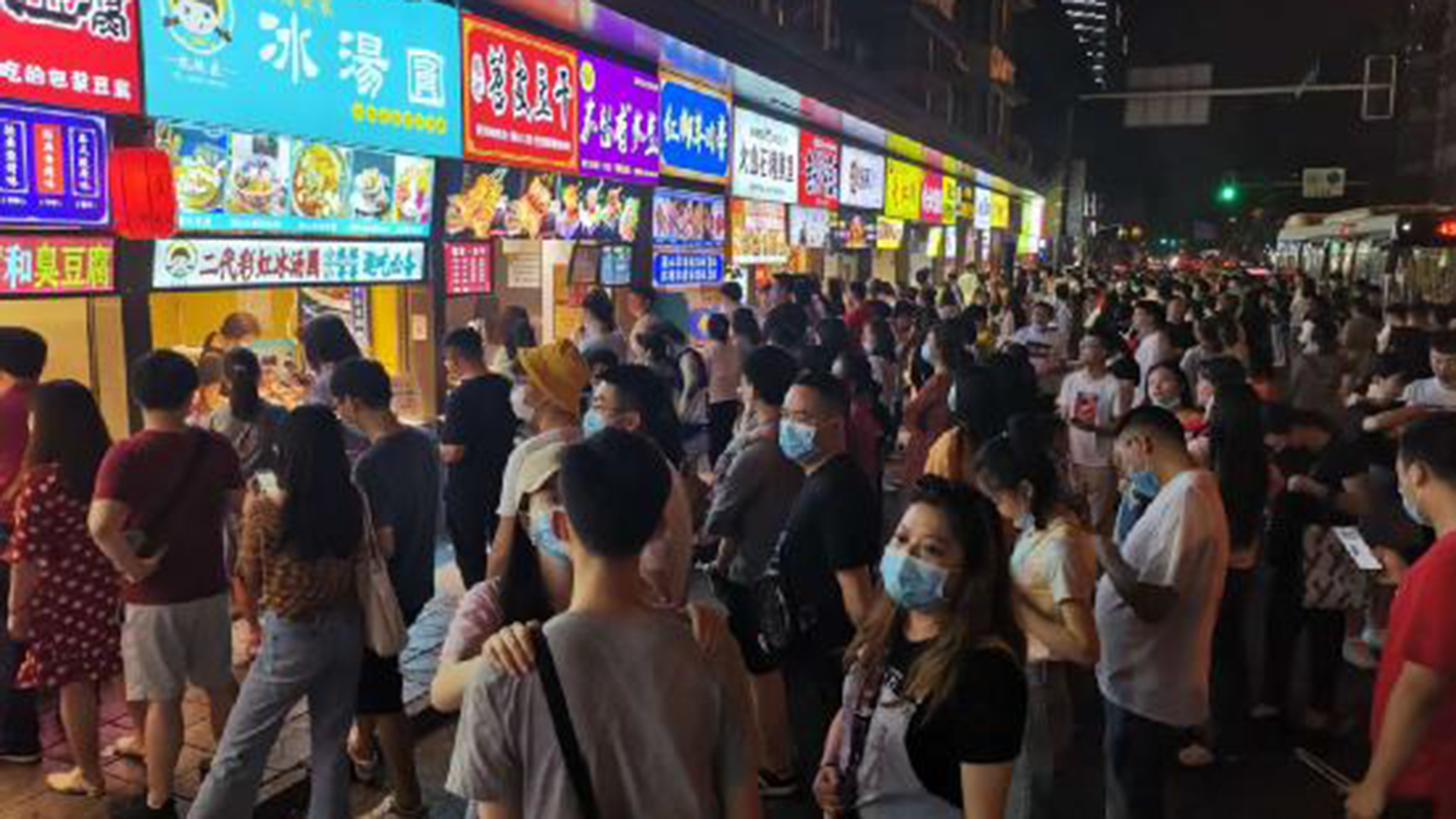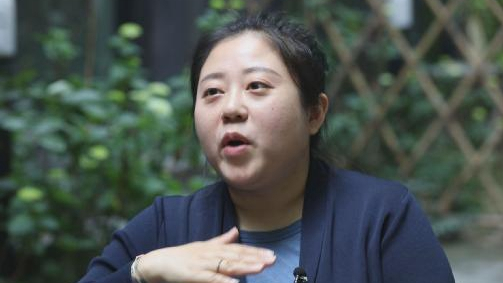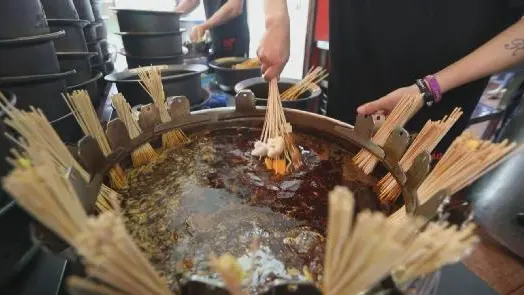
Spicy fondue-like hotpot is a famous local delicacy in Chengdu, Sichuan Province. /CGTN
It's been about two months since many restaurants in Chengdu reopened in March to receive dine-in customers, with many seeing an improvement in their daily sales. But perhaps a golden question many are wondering is if a pent-up demand or surge in consumption has been seen within the food and beverage (FB) sector.
For Li Peiwen, the owner of Mao Jiao Huo La, a popular spicy fondue-like hotpot chain (with four stores in Chengdu city), the answer is no.
"Things are evolving step by step. The situation is better than the first day when we reopened, but the 'surge' you talked about – no. I think people still need time to recover their confidence to dine out with their friends, because they are still influenced by the sudden change," Li told CGTN.
And for Su Yu, owner of Gili's Restaurant and Bar, a Western joint in a foreigner-friendly neighborhood, the answer is no too.
"We thought there would be a 'retaliatory' consumption post-pandemic, but it didn't happen. The situation this time is different from the SARS outbreak because COVID-19 is still prolonging," she said.
"And because a lot of people didn't work in February and March, not many people got full pay... they are short of money," she added.
02:19

Restaurants re-look strategies
So FB businesses have re-jigged their strategies.
"Most of our products on our menu, especially drinks – we give 20 to 30 percent off. We also have special days... on Fridays, all steak on the menu are 20 percent off," Su said.
This has been effective in luring more customers, she added.
Su also took the downtime -– when there were fewer customers – to renovate and expanded her restaurant's space.
Meanwhile, online deliveries also proved a crucial channel during the outbreak.
Li said when her dine-in business shut down, "we realized how high of a risk our business model was."
"This is the first time we realized our business model is not healthy. We depended only on dine-in revenues. And when it closes, there was no income only expenses – labour costs, rent, and other hidden costs. The sudden change [in situation] exposed all the problems."
Before the COVID-19 pandemic happened, Li said her team had never thought of online deliveries as their dine-in business was flourishing and kept them busy.

Li Peiwen of Mao Jiao Huo La said they don't make much profits from online deliveries, but it served as an alternative channel when the COVID-19 outbreak happened. /CGTN
So Li took on two measures. Besides making available their fondue-like hotpot on food deliveries platforms, Li said they also put up their most popular product, rabbit's head, on Taobao, China's major e-commerce platform.
"Although income from these two channels are too small to mention, because we put a lot of costs into them, I'm proud of the emergency capacity and executive force we displayed," Li said.
For Su and her team, they initially also focused more on deliveries since people were afraid of going out. "We did a lot of online promotion through online deliveries platforms, and gave discounts if customers ordered online."
"The pandemic really shook every restaurant owner – no matter big chain restaurants or small restaurants like us. We didn't have time to think or act at the beginning because the virus happened and spread too fast," Su shared.
"Then, my partners and I would deliver food to our customers instead of using the delivery companies, to ensure our customers received warm and quality food. And this would make our customers come back."

Su Yu of Gili's Restaurant & Bar said she and her partners would personally deliver food to their customers during the height of the pandemic. /CGTN
Dine-in figures exceed online deliveries
Now that restaurants have reopened to take in dine-in customers, both Li and Su said they see better dine-in figures.
"Our online deliveries dropped dramatically after we reopened for dining in. We are now available on online platforms just for branding purposes," Li said, adding that they are not too focused on deliveries now as their dine-in channel recovered well.
"And actually, we didn't see much profit from doing deliveries, but I think deliveries is a channel to lower the risk - it's a solution when disaster happens."
A Mao Jiao Huo La store makes about 10,000 yuan a day on average now, "which is a 60 to 70 percent recovery from before the pandemic happened," Li shared.
Meanwhile, Su said her restaurant Gili's now sees online deliveries taking up about 20 percent of its total sales.
When asked what lessons does she have to share with other FB operators worldwide, she said: "Think what your customers think, they will think of you as well. Treat your employees right, they will stay with you no matter good times or bad times."
"Most importantly, follow all the policies – protect your family, customers, employees, and yourself."
Both Su and Li have never once thought of giving up during the pandemic, instead they sought ways to navigate through it. "The power of team spirit, learning, adapting" was a common consensus from both owners.
 简体中文
简体中文

